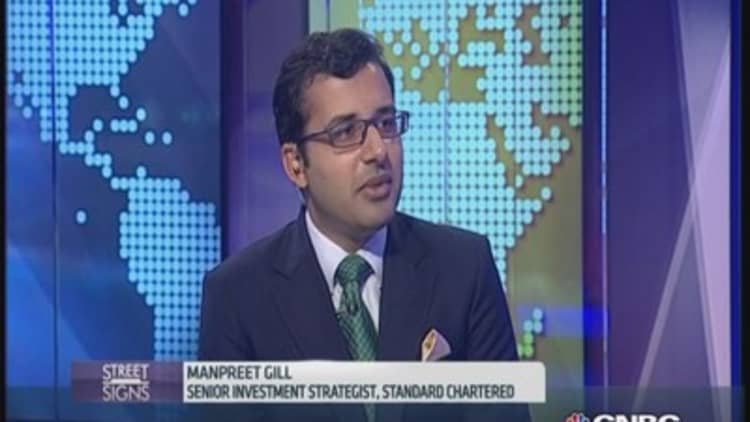Tony Abbott is facing growing pressure amid swirling speculation that a backbench revolt could unseat him as Australia's prime minister.
Mr Abbott has come under fire over the past week from four of his backbenchers, who have publicly called for a "resolution" to a perceived leadership crisis in the Liberal-National coalition government following a string of policy U-turns, personal gaffes and a shock loss in a recent state election.
The crisis may come to a head by next Tuesday, when the coalition MPs are due to meet. The support of 51 of 102 party members would be required to force a leadership change.
Mr Abbott's frontbenchers have thrown their support behind him, including the two seen as his most likely potential challengers, Julie Bishop, the foreign minister and deputy leader of the Liberal Party, and communications minister Malcolm Turnbull.
Ms Bishop has said she would not directly challenge the prime minister for leadership of the Liberal party. However, she has not ruled out contesting the position if it were vacated.

"I said to the PM yesterday that I am not campaigning for his job, I am not ringing the backbench seeking support, I am not counting numbers," Ms Bishop told The Australian Financial Review on Wednesday. "I support the leader, PM Tony Abbott."
A spokeswoman for Mr Turnbull denied that he was shoring up support among backbenchers for a run at the top job. In late 2009, Mr Turnbull's support in principle for an emissions trading scheme proposed by Kevin Rudd's Labor government culminated in his ousting as leader of the then opposition Liberal party: he lost a party ballot to Mr Abbott by a single vote.
The coalition will want to resolve its leadership problems quickly if it is to avoid the sort of infighting and oscillating leadership that characterized Labor's time in office and contributed to that party's defeat in the 2013 federal election.
Read MoreShould yield chasers set their sights on Australia?
Policy u-turns and Mr Abbott's blunders have caused the coalition's popularity to slump. This played out disastrously for Queensland's Liberal party, which lost power in a state election on Saturday in one of the biggest turnrounds in Australian electoral history. That result means about $A30 billion (US$23 billion) of asset sales proposed by the Queensland Liberal government are likely to be put on hold. It also has the potential to cast a shadow on the Liberal government in New South Wales ahead of a state election on March 28.
"The Liberal party don't want this to drag on for more than a week or two because of the state elections in New South Wales. They either need a new leader, which could provide them with a short-term bump in the polls, or all the leadership speculation to go away quickly," said Peter Chen, a politics expert at The University of Sydney.
Mr Abbott returned from his summer holiday and addressed the National Press Club this week promising the "most consultative and the most collegial government this country has ever seen". He announced his controversial paid parental leave scheme would be dropped in favor of a broader "families package" and introduced a jobs-boosting package that features a 1.5 per cent tax cut for small businesses.
Mr Abbott conceded that he "overdid it on awards", a reference to his "captain's call" decision to award Prince Philip a knighthood that drew criticism and ridicule, and has been blamed by Queensland colleagues for their rout at the weekend election.

